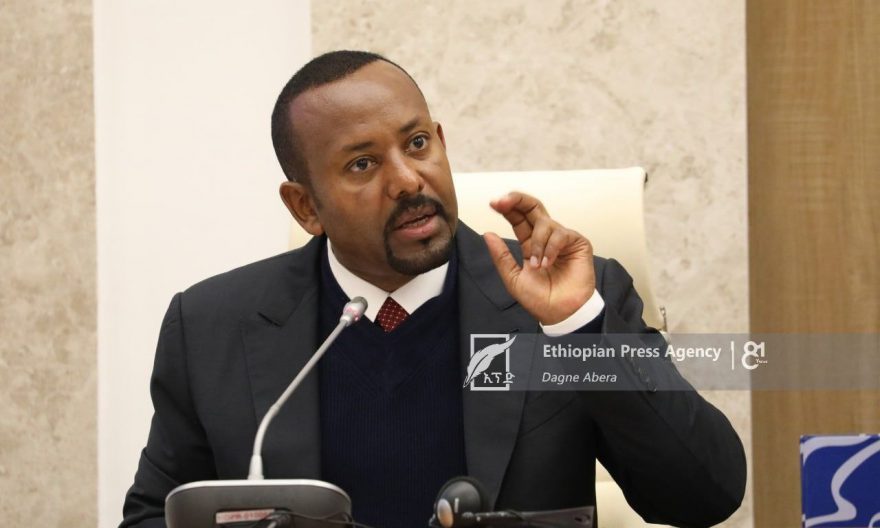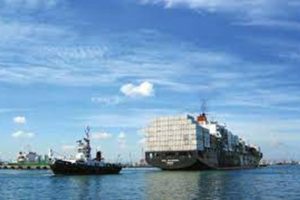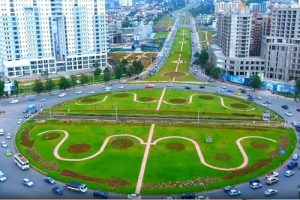
Effective utilization of finance and allocation of budget is among the primary duties of government. Amid countless temptations and epic narration the country encountered due to global and domestic pressures, the nation rolls well against omens of pessimists and antagonists.
The House of Peoples’ Representatives has ratified the 2015 E.C. federal budget of 786.6 billion Birr. The council held its last regular session of the 2014 fiscal year on Thursday in the presence of Prime Minister Abiy Ahmed (PhD).
On the occasion, Prime Minister Abiy said that the 2015 federal budget will be allocated on reducing debt, reducing budget deficits, saving resources and stabilizing inflation.
The House of Peoples’ Representatives in its 16 Regular Session on Thursday endorsed a 786.61-billion-Birr budget to the 2022/23 fiscal year while directing stakeholders to utilize the budget for the allotted purpose in keeping the law and order and maintaining fiscal and monitory policy.
Briefing members of the parliament (MPs), the Prime Minister said that the government has a plan to set up fiscal consolidation, budget saving and extension of agricultural projects while regulating budget deficit. “The soaring inflation has to be tackled by fiscal consolidation, strong financial management, and by enhancing productivity. If we failed to manage such strategies, we will never manage the inflation too,” he stressed.
Noting agricultural productivity has been enhanced greatly amidst the unrest in parts of the country and global conflicts, the Premier highlighted that the success in the area is further consolidated by meticulous approaches. “Considering billions of dollars the completion of mega projects is required, increasing Ethiopia’s agricultural productivity and forex earnings are second to none.”
Abiy further stated that the government has allotted a significant portion of the budget to the rehabilitation and restoration of war-affected communities and infrastructure in various parts of the country.
“Having challenged by the northern conflict, the spread of COVID-19 pandemic and other national and global crises, Ethiopia’s economy registered a noteworthy growth in last year and the success is being acclaimed by the International Monetary Fund (IMF) and other pertinent bodies,” he said.
During the last 11 months of the current fiscal year, Ethiopia has achieved 93 percent of the plan set to collect revenue which is 309 billion Birr. While the performance has exceeded that of same period last year by 50 billion Birr, it is also showcasing the government’s growing capability to mobilize resources.
About public expenditure, the PM indicated that the government spent about 500 billion Birr to execute various works and activities in the reported period; 1.7 billion USD was allotted to disburse foreign loans.
Mentioning 59 percent of this year’s budget is allocated to activities that will have paramount significance to poverty reduction including infrastructure, construction, health and education, the Premier said due attention has been given to enhance the logistic sector’s performance. Home to 100 million and plus people, the expansion of road and dry port is not an option for Ethiopia and a matter of existence.
He also said that the government put in place on rehabilitation, humanitarian assistance and strengthening national security and peace.
The 2022/23 budget year is focused on achieving the goals set in the 10-year development plan, safeguarding the country’s security, assisting the displaced and rehabilitating damaged infrastructure and services, and achieving sustainable social and economic transformation directions and objectives.
He said the budget will focus on sustaining the impressive work the country has started in agriculture and timely completion of projects.
Compared to the preceding budget year, it is projected to grow by 111.94 billion Birr or 16.59 percent. Prime Minister Abiy Ahmed also said that there has been a huge increase in exports. Explaining the increase in exports, He said: “If we can maintain this for a few years, it will help to maintain the balance of expenditure and revenue and solve the foreign exchange shortage.”
He noted that Ethiopia exported goods worth two billion Dollar in 2010, noting that it was difficult to reach three billion Dollar between 2010 and 2020.
He said only one billion dollars has been increased in the last ten years from the export sector. However, the service sector has grown by 25 percent to more than 6 billion Dollar.
Regarding infrastructure, the Premier said that the Ethiopian Roads Administration (ERA) has done a lot in roads construction. He further said that road construction that has been delayed for various reasons will be completed soon. In terms of electricity, he said, the sector has registered astonishing result in infrastructure, power generation, transmission, and distribution.
Therefore, in order to solve the problem of poor execution capacity of export trade, we need to follow the ‘off-grid’ system so that power can be distributed directly everywhere. “In terms of irrigation development, great attention has been paid to Gode Irrigation,” he said.
Regarding sugar industry, he said: “Five more sugar factories have been added to meet the country’s aspiration and over stretched plan to be self sufficient.”
While commenting on port services, he said that there are eight dry ports operational so far and efforts are underway to increase that number to 11.
According to the Prime Minister, the export and import trade needs to be streamlined. Citing this year’s performance, he noted that the 98 percent accomplishment of coffee export is a good example.
During the presentation of the budget draft, The Ethiopian Herald had invited relevant bodies to react on the government’s intention regarding allocation of the new budget to fix the overall complications.
The paper came across economists and scholars concerning the issue. Upon his moment, Wossenseged Assefa, an Economist, said; “If you have more money, these money would ran after letter amount of supply in the market this in turn creates inflations.” However, the government is ambitious to levy taxes and aspires to fix the economy and manages its dedication by showing a figure gauging 786.61 billion Birr, the situation creates problematic situations upon the tax payers as the main source of the state budget is generated from internal source. Increasing the tax and pressuring tax payers by itself is another sort of adding complication to the state in hazard.
By the same token, the country put in place to get on track of development relaying on grants, loans and aids sourced from abroad. Nonetheless, such sources are remained in war, pandemic and post traumatic situation resulted from. Even though, if it is possible to gain the money from abroad without compromising national sovereignty, it would be even should be welcomed positively to balance the budget deficit. So the government is urged not to print money and advised not to inject to the market rather it should focus to product and productivity sectors.
Similarly, an Economics Scholar from Addis Ababa University only agree to speak to the writer of this piece for the purpose of anonymity insisted that the question that maters should not be the volume of budget but rather focusing on to which areas of priority it is allocated.
Regarding the budget, the government said there has been 16 percent of increment, but scholars saw it from another polar thinking time value of money.
According to the scholar, the budget which is currently being seen as staggering is even below the budget vis-à-vis last years in terms of econometrics terms.
The Scholar unveiled that, the incumbent has to focus on production and productivity, supply and the manufacturing industry and urged to investigate the construction sector which revealed to be service sector as time gone by.
Government’s expenditure, financing priority and budget policy would be the questions that matters in deciding the fate of the nation. The other side which is not explicated by the government is where the budget will going to. “The macroeconomic trend is like sailing a ship not a car as you can’t escape an iceberg in front”. Hence the macroeconomic problems would never be alleviated in short time spans and the country’s problems are structural and need the commitment of the government inviting actors in particular economists in setting the country’s fate in formulating policies and strategies.
BY LAKACHEW ATINAFU
The Ethiopian Herald 10 July 2022





